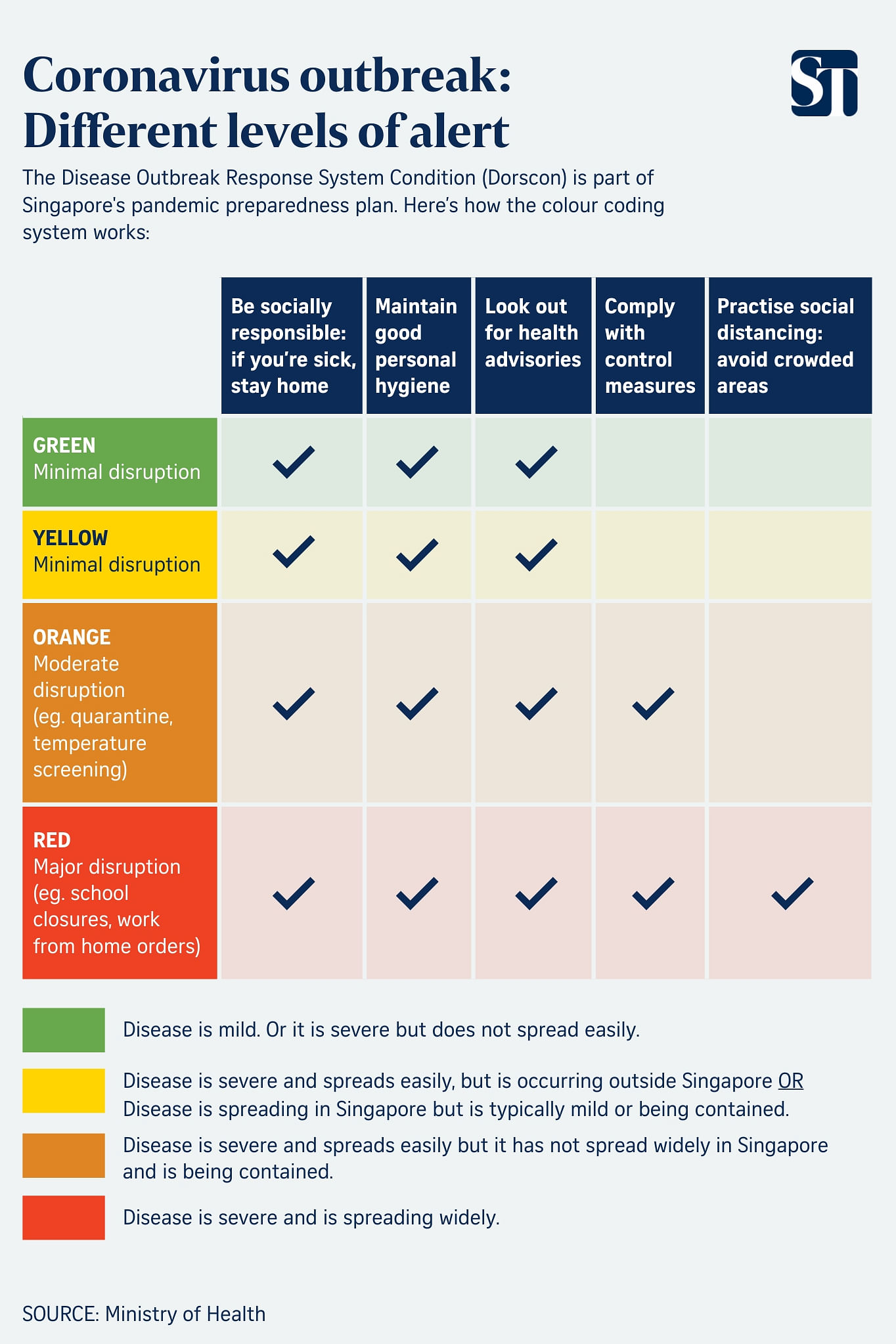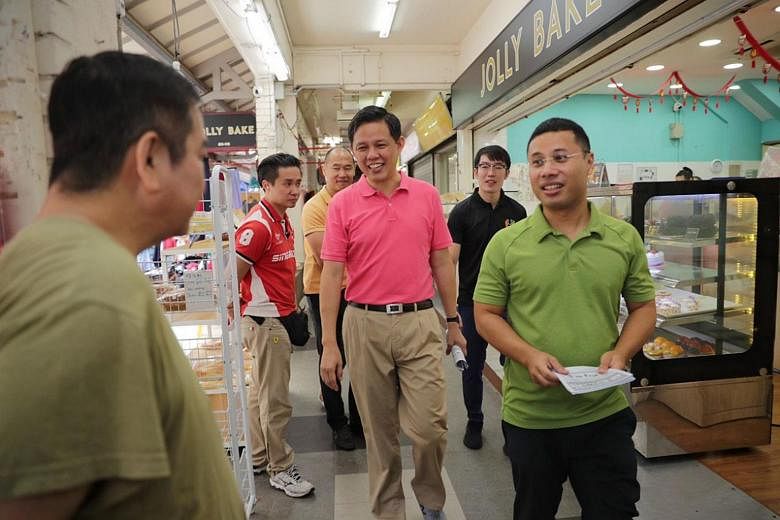SINGAPORE - Supermarket shelves have been wiped clean of many staples since Friday (Feb 7) when the coronavirus situation officially became more serious.
But the panic buying is unnecessary as the Government has a strong national stockpile and supply chain in place and local food manufacturers have also stepped up production, said Trade and Industry Minister Chan Chun Sing on Sunday (Feb 9).
Such each-man-for-his-own behaviour in a crisis also affects vulnerable groups of society and reflects poorly on Singapore in the world's eyes, he added.
Singapore shifted its disease outbreak status to orange on Friday.
Speaking to the media after a walkabout in Jurong West, Mr Chan explained four ways the government is meeting the nation's food supply needs.
The first is a sufficient national stockpile of food items that can last for a long time, an example being rice.
The Government does not reveal the size of its inventory, however, as doing so would compromise Singapore's ability to secure supplies internationally, Mr Chan added.
"If people think that Singapore and Singaporeans are panicking, they will jack up the prices for the supplies that they want to sell to us, even if they have supplies, and this undermines our collective interests," he said.
The second way is by having diverse sources such that Singapore is not held ransom by any single supplier.
This is particularly important for protein, which Mr Chan said has been sourced from as far as Europe and South America to ensure supply line are intact.
Third, Singapore has some local production capability. For example Singapore has quite a few noodle manufacturers that have ramped up supply in the last few days, he said.
The final strategy is to work with trusted suppliers, both regionally and globally.
Mr Chan also said that his ministry has received numerous reports of retailers who have marked up prices on goods like medical supplies, and will investigate these claims systematically. The ministry is also asking online platforms where such sales are made not to tolerate such behaviour.
He was responding to questions about such retailers, after MP Louis Ng posted to Facebook on Saturday a night a photo of a box of masks going for $138 in his Nee Soon constituency.
Reiterating that Singapore's supplies are sufficient, Mr Chan said that Singaporeans should not succumb to such ploys.
"We can make a choice and say that there's no need for us to succumb to this type of unfair and unethical profiteering," he said.
Mr Chan was accompanied by Minister for Social and Family Development Desmond Lee, who said that his ministry is enhancing precautionary measures for vulnerable communities like seniors, children and those with disabilities.
These include temperature-taking at preschools and restrictions on casual visitors for residential homes and day facilities.
"(Lower-income) families continue to need to be supported - crisis or no crisis, infectious disease or no infectious disease," he said.
"I'm grateful for (our) many volunteers, many frontline colleagues who continue to soldier on and continue to ensure a sense of normalcy while taking all the necessary precautions to protect themselves and their service users."
Mr Lee said the take-up rate for the masks distributed by the Government is at 54 per cent nationally. Households who have not collected their masks yet can do so at community centres until the end of the month, after which any remaining stock will be redistributed to vulnerable communities.
Mr Chan also warned of the negative impact of panic buying. "If, in a crisis, all of us only take care of ourselves and it's only the strong taking care of themselves, then I think it will be a bad testimony to the kind of society that we want and that we can have," he said.
Countries are also looking at how other states respond to the coronavirus situation, said Mr Chan.
If Singapore responds well as a cohesive and calm community, it gives other countries confidence to continue to want to do business with us after the crisis.
"But on the other hand, if we don't do this collectively, we undermine the international confidence in our system, in our society, and that will have long term implications on us," he said.

Singapore moved its disease outbreak response up one level to orange on Friday (Feb 7), after cases surfaced here which could not be traced to a source of infection.
Under the Disease Outbreak Response System Condition (Dorscon), orange means the outbreak is deemed to have moderate to high public health impact, though the situation is still under control. It is one step below red, which signifies an out-of-control pandemic.












